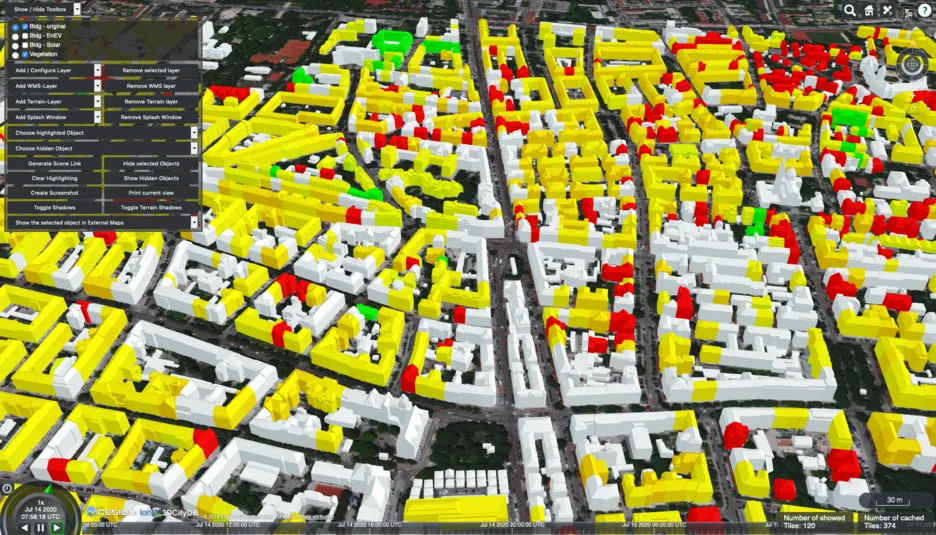urbi +
The prototypical software tool urbi+ was developed by Dr.-Ing. Hannes Harter as part of his PhD entitled "Life Cycle Assessment of the Technical Building Services of Large Residential Building Stocks on the Basis of Semantic 3D City Models". Mr. Harter worked on his PhD at the Institute of Energy Efficient and Sustainable Design and Building, TUM School of Engineering and Design, Technical University of Munich and successfully completed it in October 2021.
Background and Challenge
The development, planning, and implementation of sustainable building concepts are some of the most important milestones on the way to a climate-neutral or climate-positive society. Life Cycle Assessments (LCAs) and Life Cycle Cost Assessments (LCCs) enable the analysis and evaluation of energy, emissions, and cost performance (including CO2-costs) over the entire life cycle of buildings. However, both LCAs and LCCs are not currently included in building codes and thus are rarely applied in design and construction practice. If application does occur, it is usually only at the level of individual buildings and for building construction.
Method and Application
The method developed in the context of Mr. Harter's PhD makes it possible to perform LCAs and LCCs of large residential building stocks using semantic 3D city models. The focus is on selected components of the technical building services and the building use phase. The method was implemented prototypically in Java. This resulted in the software tool urbi+. It was used, for example, to calculate and analyze the residential building stock of the City of Munich (about 115,000 residential buildings) and of New York City (about 500,000 residential buildings).
Relevance of the work
The results serve urban planners and politicians as a basis for decision-making and for the analysis of development concepts and thus support the implementation of fundamental approaches of life cycle thinking with the goal of climate neutrality.

Related links with additional information:
Link to Dissertation: https://mediatum.ub.tum.de/node?id=1610979
Link to an example project: https://github.com/tum-gis/LCA-TGA
Link to the conference publication belonging to the example project: https://www.isprs-ann-photogramm-remote-sens-spatial-inf-sci.net/VI-4-W1-2020/85/2020/
Link to MUCBOOK- Article: https://www.mucbook.de/wie-realistisch-ist-muenchens-klimaneutralitaet-bis-2035/
For detailed information please contact:
Dr.-Ing. Hannes Harter